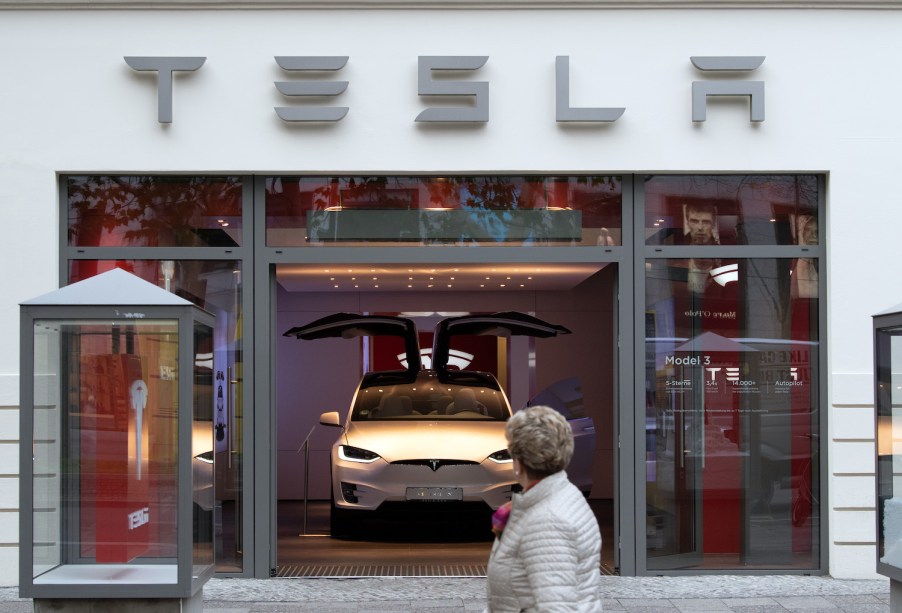
Will EVs Kill Car Dealerships?
Electric vehicles will need much less regular maintenance than their internal combustion counterparts. This EV fact has more traditional car dealerships worried about their bottom line. As dealers voice their concerns to automakers, we are seeing a range of responses to manufacturers. But there may be some as-yet unexpored ways for dealerships to survive the eventual electrification revolution. And the truth is that dealerships may have an important role to play in the electrification revolution.
Some dealerships are hesitant to sell EVs

Electric Vehicles will likely last much longer than internal combustion cars did. This is because electric motors have so few moving parts. Electric vehicles also don’t need many fluids–such as oil–changed regularly. Finally, they preserve their traditional brakes by using their motors for regenerative braking.
Electric vehicles will still need periodic repairs to systems such as their suspension and battery cooling circuits. And of course, their high-voltage battery needs replacement eventually. But these battery packs are proving to last longer than many internal combustion engines, and future battery technology may last longer still.
Overall, dealership maintenance departments will make much less money over the lifetime of an electric vehicle. Dealers can also expect to sell fewer vehicles, with used EVs staying on the road for a very long time.
Some dealerships may still be supporting the electrification revolution. But some have voiced concerns to their automaker partners. The range of responses has been interesting, to say the least.
Dodge and Buick have opposite responses to dealerships hesitant to sell EVs

General Motors has pledged to transition Buick to all-electric vehicles by 2030. It has announced an all-SUV, all-electric lineup. But some Buick dealerships don’t like the sound of this. A few of them have been so outspoken that Buick had to put them on notice. My colleague Dan Mayfield reported that Buick threatened to buy out dealerships that refuse to sell the automaker’s new EVs.
According to MOPAR Insiders, Dodge dealerships have also expressed concern over the brand’s eMuscle future. Dodge, on the other hand, is doing its best to placate its dealer network. When it rolled out its Dodge Charger Daytona EV, it also revealed a unique approach to electric performance. When you buy the car from the factory, it will essentially be software-limited to not make full horsepower. If you want to unlock its full potential, you must buy an eStage 1 or 2 high-performance key from the dealership.
You can read more about how Dodge is charging extra for full EV horsepower.
Is the dealership dead?
Some electric vehicle startups are doing away with the dealer network. This has many wondering if the dealership is dead. But there is a potential future in which dealerships coexist with electric vehicles.

At present, car dealerships are private small businesses that purchase a franchise from major automakers. They then purchase vehicles from these automakers to keep on their lot and attempt to sell them at a profit. You can also custom order a vehicle through the dealership. Finally, the dealerships employ manufacturer-certified technicians who complete maintenance for their customers.
If electric vehicles last longer than internal combustion vehicles, dealerships will make less of a profit. If electric vehicles need less maintenance, dealership profits will fall even lower. But if EV chassis last an extremely long time, dealerships may be able to serve a new role.
Owners who have the same EV for decades will need its interior, and perhaps even its body, updated. They may also wish to trade their perfectly functional car in for one that suits their changing lifestyle–or is just more modern. Dealer technicians could update the old vehicle and resell it for nearly the price of a new car. This would make an EV dealership a cross between a modern dealership and an old-time coachbuilder.
Is the automobile dealership worth saving?
I personally think there are several reasons to fight for the dealership: it is a small local business. Its salespeople will be an increasingly important source of information as vehicle technology changes.

Car dealerships take some of the profit of a car sale away from a multinational conglomerate and keep that money in the local community. This alone is a reason we should think twice about moving past a non-dealership form of car buying.
In addition, technology is changing rapidly. With automobile electrification and automation on the horizon, consumers will have more questions every year. A dealership offers them a place to speak with experts and complete test drives. It also empowers a member of their local community to question the choices of automakers based on feedback from buyers. We should think twice before doing away with the dealership.
Next, read why Mercedes warns EVs will get more expensive or see CNBC’s investigation into how online car sales are replacing dealerships in the video below:



